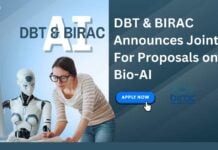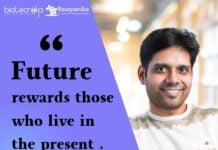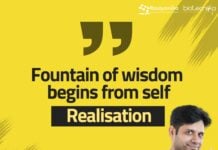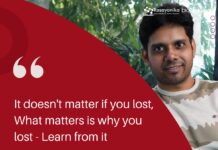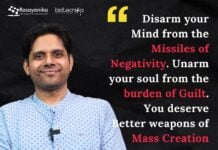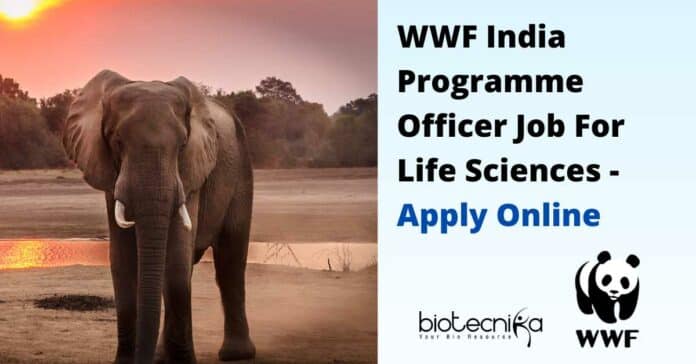WWF India Programme Officer Job For Life Sciences – Apply Online
WWF India Programme Officer Job For Life Sciences – Apply Online. Senior Programme Officer – Content and Training job for msc life sciences candidates at WWF. Interested and eligible applicants can check out all of the details on the same below
Job role: Senior Programme Officer – Content and Training
Location: New Delhi, India
Industry: NGO/Social Services
Employment type: Full time
Job Description:
WWF-India’s Environment Education division is a dynamic team whose work is geared towards facilitating real-world change. Our vision is to inform and empower children, youth, and citizens to take action and create impact for a sustainable planet. The team has an on-ground presence in 12 states. Through a variety of outreach and engagement initiatives across six education verticals, Team EE connects with students, educators, school leaders, college goers, young adults, professionals, and citizens around the country and offers well-researched, scientifically accurate and audience appropriate educational and training materials.
WWF-India’s Environment Education team is looking to recruit a qualified and experienced Senior Programme Officer – Content and Training for the Environment Education Division based out of New Delhi.
Role:
- To develop educational content and training materials, write and edit content for the team’s communications needs, and implement trainings for WWF-India’s Environment Education programmes.
Job Profile:
- Content development: Researching and writing environment-themed content in different formats (learner resources, short online courses, educational articles, training modules, slide decks, video scripts, reports, press releases etc.)
- Content review and editing: Rigorous fact-checking against scientific papers/reports/ other credible sources; identifying errors, factual inaccuracies, issues with context or clarity in developed content.
- Communications: Writing articles, newsletters, social media posts, and content for other programme collaterals.
- Training: Conducting capacity-building training and programme orientations for students/educators/other audiences; capturing feedback from participants.
Identify and liaise with experts, consultants (writers, illustrators, designers) and internal stakeholders for content development and design and other support.
Any other work that may be assigned from time to time.
Requirements:
Desired qualifications and experience:
- A post graduate degree in Environment Science / Ecology / Wildlife Biology/ Life Sciences / Sustainability Studies / Education / Communications from a reputed university.
- A minimum experience of 4-5 years in writing and editing scientific content, developing educational modules and training materials, teaching or conducting workshops on-ground and online.
- Experience in the Educational Technology/Instructional Design space may be an advantage.
- Excellent English language skills, as most of the role involves writing and editing content in a variety of formats.
- A demonstrable ability to research and interpret scientific information on environmental issues and communicate on these themes.
- Expertise with Microsoft Office tools (Word, PowerPoint, Excel).
- A demonstrable ability to create content to suit a variety of audiences.
Possible interview questions with answers for the role of Senior Programme Officer at WWF:
1.Can you describe your experience in developing educational content and training materials related to environmental themes? How have you ensured the content is accurate, scientifically sound, and suitable for various audiences? A: In my previous role, I was responsible for creating a wide range of educational content, including learner resources, training modules, and video scripts, all focused on environmental issues. To ensure accuracy and scientific validity, I conducted thorough research, cross-referencing information from reputable sources such as scientific papers and reports. Additionally, I collaborated closely with subject matter experts and internal stakeholders to review and validate the content. Adapting the language and complexity of the content to suit different audiences was achieved through careful consideration of the target demographic, making the information accessible and engaging.
2.How have you contributed to the development of communication materials for an NGO or a similar social service organization? Can you provide an example of a successful communications project you worked on? A: In my previous role at an NGO, I played a pivotal role in crafting communications materials to raise awareness about environmental issues. One notable project involved developing an engaging educational article about sustainable practices for a school magazine. The article not only conveyed crucial information about environmental conservation but also inspired students and teachers to adopt eco-friendly initiatives. Additionally, I successfully created social media posts that garnered significant engagement and amplified the organization’s message to a wider audience.
3.Tell us about your experience in conducting on-ground and online training sessions for diverse audiences. How do you tailor your training approach to accommodate different learning needs? A: Throughout my career, I’ve conducted numerous on-ground and online training sessions for students, educators, and other stakeholders. To cater to diverse learning needs, I employ interactive teaching methods, visual aids, and case studies to enhance engagement and understanding. I make it a point to actively seek feedback from participants during and after the sessions to identify areas of improvement and address any queries. This iterative approach allows me to adapt my training techniques and materials based on the audience’s feedback and preferences, ensuring an enriching learning experience for everyone involved.
4.How have you managed collaborations with external experts, consultants, writers, and designers in your previous work? Can you share an example of a successful collaborative project? A: In my previous role, I frequently collaborated with subject matter experts, consultants, writers, and designers to enrich the educational content and training materials. For instance, I worked closely with a team of illustrators and instructional designers to create an interactive online course on wildlife conservation. By leveraging the expertise of the illustrators, we were able to visually depict complex ecological concepts in an easily understandable manner. Similarly, the instructional designers ensured that the course structure and user interface were user-friendly and conducive to effective learning. This collaborative effort resulted in a highly successful and impactful online course that received positive feedback from both educators and learners.
Editor’s Note: WWF India Programme Officer Job For Life Sciences – Apply Online. Please ensure you are subscribed to the Biotecnika Times Newsletter and our YouTube channel to be notified of the latest industry news. Follow us on social media like Twitter, Telegram, Facebook

